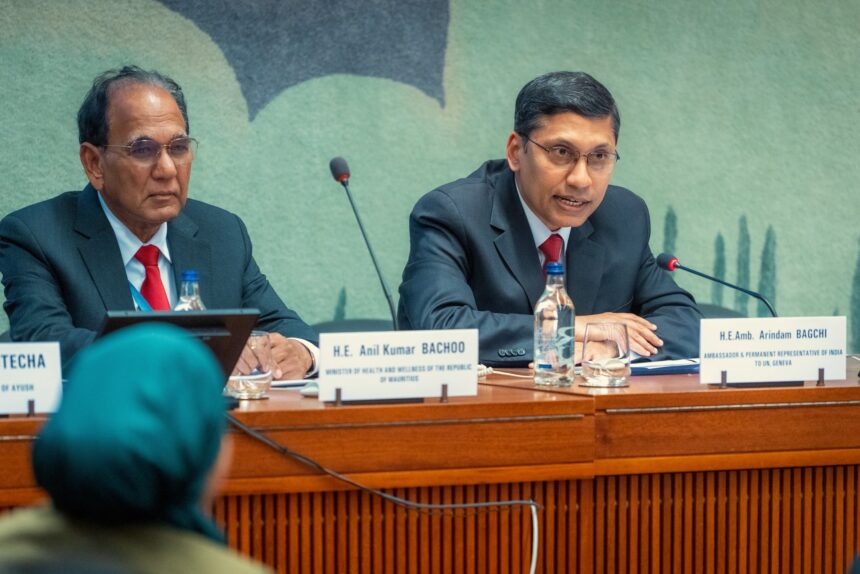NewzVille Desk
India reiterated its strong commitment to strengthening Traditional Medicine (TM) systems as part of an integrated approach to healthcare. Speaking on behalf of India, at the 78th World Health Assembly (WHA) held in Geneva under the theme “One World for Health,” Arindam Bagchi, Permanent Representative to the United Nations in Geneva, welcomed the adoption of the new WHO Global Traditional Medicine Strategy 2025–2034 and highlighted India’s efforts to embed evidence-based traditional practices into national and global health frameworks.
Under the visionary leadership of Prime Minister Narendra Modi, India’s approach, characterized by the integration of modern medicine with scientifically validated traditional systems such as Ayurveda, Yoga, Unani, and Siddha, was emphasised as a practical model for other nations.
Bagchi noted that India had shown strong leadership in implementing the previous WHO Traditional Medicine Strategy (2014–2023) and expressed support for its successor framework.
India’s significant contribution to the global Traditional Medicine ecosystem is reflected in the establishment of the WHO Global Traditional Medicine Centre (GTMC) in Jamnagar, Gujarat. Launched in 2022 with the support of the Government of India and inaugurated by Prime Minister Narendra Modi alongside WHO Director-General Dr. Tedros Adhanom Ghebreyesus, the Centre is the first of its kind and plays a vital role in data analytics, policy support, standard-setting, and research collaboration.
A key development this year was the signing of a Donor Agreement between the Ministry of Ayush and WHO on 24 May, 2025, to initiate work on a dedicated Traditional Medicine module under the International Classification of Health Interventions (ICHI).
Lauding this milestone during his Mann Ki Baat address, Prime Minister Modi noted it would enable Ayush systems to reach a global audience through a scientific and standardised framework.
“India is proud to contribute to the global integration of Traditional Medicine. The ICHI module will enhance scientific credibility and facilitate global recognition of Ayush systems. We remain committed to supporting WHO’s efforts of inclusive, safe, and evidence-based traditional healthcare,” said Vaidya Rajesh Kotecha, Secretary, Ministry of Ayush.
The new WHO strategy encourages Member States to enhance regulation, integrate Traditional Medicine services where appropriate, and uphold indigenous knowledge, environmental sustainability, and biodiversity. India’s initiatives resonate strongly with these principles, underscoring its role as a committed partner in advancing traditional medicine for global well-being.
India remains dedicated to supporting WHO and Member States in realising the full potential of Traditional Medicine in achieving universal health coverage and the Sustainable Development Goals.






